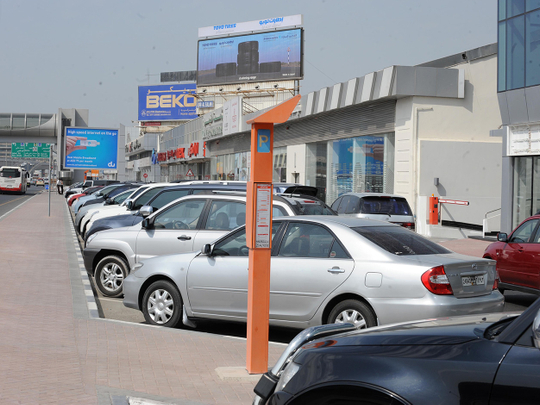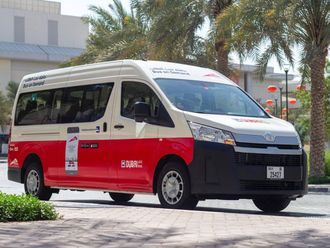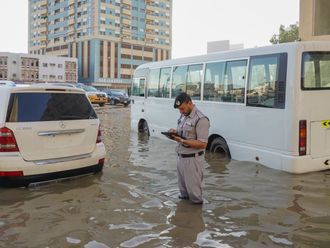
Dubai: The revised parking tariffs in Dubai will take effect on 28 May 2016, the Roads and Transport Authority (RTA) has announced on Wednesday.
The authority said the decision to revise the parking fee structure in Dubai was prompted by the need to find solutions for the problem of decreasing number of vacant parking slots in highly congested parts of the city.
How the new parking structure works
It also stems from the need to encourage the people to use more mass transport means and abandon the heavy reliance on private vehicles.
The fee hike, however, does not affect 77 per cent of the total number of paid parking slots in Dubai, which amounts to about 130 thousand car parks.
Engineer Metha bin Udai, CEO of RTA’s Traffic & Roads Agency said: “The decision to regulate the use of parking in Dubai involving a parking fee hike effective from this May 28 covers only 23% of total parking slots in Dubai — 77% of parking slots are not affected by this revision."
The decision, she said, is aimed to increase the rotation of using parking slots in high-demand areas in order to make them available to the largest possible number of users and address the scarcity of vacant parking slots in the city's congested areas.
Click to view infograph: New parking tariffs in Dubai
“A full system involving free packages and services has been developed for citizens and residents spanning a wide spectrum of the community such as the disabled, seniors, and government entities among others," she said.
Moreover, 11 types of parking permits will be available to a variety of community segments to serve their legitimate needs, supported by documentary evidences, to avail such permits.
These 11 categories include: permanently disabled, temporary disabled, disabled tourists and visitors of the Emirate, patients with chronic illnesses regularly visiting hospitals, seniors over 60, citizens residing in controlled public parking zones, in addition to GCC citizens residing in controlled public parking zones, government entities, consulates operating in the Emirate, and residents in residential communities where parking is prohibited at night for non-residents, in addition to permits at discounted rates offered to university students,” explained Metha.
“The new policy of revising the tariff of public parking in Dubai is built on concept of ensuring that parking slots are not unjustifiably occupied, and are made available to the largest possible number of users especially at noon, to enable people visit hospitals, malls and banks.
"RTA is continuing to upgrade and broaden its service network through offering alternative solutions to encourage the people to use public transport means, which are considered integral part of Dubai infrastructure.
Least expensive
The new parking policy conforms to the top practices of the industry and is considered the least expensive when compared to similar policies of major cities such as London, Singapore and Hong Kong.
"The new policy takes into consideration the rate of parking occupancy in the area, proportion of commercial and residential buildings, and the availability/congestion of public transport means,” she noted.
“The free parking period at noon has been abolished under the new policy and the paid parking period will thus continue seamlessly from 8 am to 10 pm during weekdays except Friday and public holidays.
"The move is intended to increase the frequency of using the single parking during that period in response to the needs of the local market and the wishes of customers to regulate the public parking during that period.
The parking fare in multi-level parking terminals has also been raised from Dh3 to Dh5 per hour in order to increase the rotation of using the parking slots in these buildings, said Maitha.
“RTA always seeks to provide convenient mobility to customers & community members in Dubai in terms of using public transport means & car parks, and figuring out suitable solutions to any challenges encountered in optimizing the benefits from RTA services,” she added.











